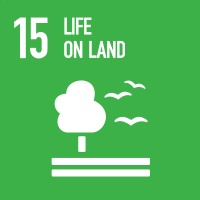Studying at the University of Verona
Here you can find information on the organisational aspects of the Programme, lecture timetables, learning activities and useful contact details for your time at the University, from enrolment to graduation.
Study Plan
This information is intended exclusively for students already enrolled in this course.If you are a new student interested in enrolling, you can find information about the course of study on the course page:
Laurea in Scienze e tecnologie viticole ed enologiche - Enrollment from 2025/2026The Study Plan includes all modules, teaching and learning activities that each student will need to undertake during their time at the University.
Please select your Study Plan based on your enrollment year.
1° Year
| Modules | Credits | TAF | SSD |
|---|
2° Year activated in the A.Y. 2023/2024
| Modules | Credits | TAF | SSD |
|---|
3° Year activated in the A.Y. 2024/2025
| Modules | Credits | TAF | SSD |
|---|
| Modules | Credits | TAF | SSD |
|---|
| Modules | Credits | TAF | SSD |
|---|
| Modules | Credits | TAF | SSD |
|---|
Legend | Type of training activity (TTA)
TAF (Type of Educational Activity) All courses and activities are classified into different types of educational activities, indicated by a letter.
Agricultural and wine microbiology - MICROBIOLOGIA AGRARIA (2023/2024)
Teaching code
4S003186
Credits
6
Coordinator
Not yet assigned
Language
Italian
Scientific Disciplinary Sector (SSD)
AGR/16 - AGRICULTURAL MICROBIOLOGY
Courses Single
Authorized
The teaching is organized as follows:
Teoria
Laboratorio [Laboratorio 1° turno]
Laboratorio [Laboratorio 2° turno]
Program
------------------------
UL: Teoria
------------------------
Short history of microbiology. Introduction on identity and distribution of microrganisms in the vitiviniculture chain. The cell: general concepts, distinction between prokaryotes and eukaryotes.
Morphology and cytology of the microbial cell. Structure and functions of the prokariotic cell: cell wall, capsule, flagella, cytoplasmic membrane, cytoplasm, organelles, ribosomes, reserve substances, bacterial genomes. The bacterial spore.
Microbial nutrition.
Cultivation techniques, selection and isolation techniques.
Microorganisms and the environment: responses to temperature variation, oxygen, pH and water activity.
Microbial growth kinetics. Control of microorganisms by physical and chemical agents.
Microbial metabolism. Aerobic and anaerobic respiration. The main fermentations.
Genetics of microorganisms. Genetic information in bacteria: bacterial chromosome, plasmids and transposons. Operons. Mutations: selection and identification of mutants. Horizontal transfer of gene information between bacteria: transformation, conjugation, transduction. The viruses. Bacteriophages: lithic cycle and lysogenic cycle. Classification of microorganisms and the study of microbial diversity: techniques for the analysis and their application in the study of ecosystems relevant for the viticulture and oenology.
------------------------
UL: Laboratorio
------------------------
The microbiology laboratory: tools and equipment.
The microbiological risk.
Introduction to classical laboratory microbiological techniques (preparation of culture media, sterilization techniques, pure culture method, serial dilutions, plating and counting).
Optical microscopic examination of fresh and after staining preparations.
Exercises for the determination of the microbial count of samples of interest.
------------------------
UL: Laboratorio
------------------------
The microbiology laboratory: tools and equipment.
The microbiological risk.
Introduction to classical laboratory microbiological techniques (preparation of culture media, sterilization techniques, pure culture method, serial dilutions, plating and counting).
Optical microscopic examination of fresh and after staining preparations.
Exercises for the determination of the microbial count of samples of interest.
Didactic methods
------------------------
UL: Teoria
------------------------
Frontal lessons in the classroom. Multimedia materials (videos) may also be used in preparation for specific lessons.
------------------------
UL: Laboratorio
------------------------
The module will be mainly carried out in the laboratory and in Italian
------------------------
UL: Laboratorio
------------------------
The module will be mainly carried out in the laboratory and in Italian
The lessons of the entire course will be delivered exclusively in person without any recourse to emerging online teaching methods.
It will not be provided in other ways if not limited to students who, due to Covid, cannot access the University, upon presentation of the relative request on the appropriate form. The methods of delivery relating to this case will be decided by the teachers of the modules and may include sending the registration, organizing a lesson in streaming, sending additional material or organizing a face-to-face or remote meeting.
Learning assessment procedures
------------------------
UL: Teoria
------------------------
The exam aims to verify the skills and knowledge acquired in the context of the topics addressed during the lectures and laboratory activities. Verification of learning, both for attending and non-attending students, will be carried out at the end of the module through an oral exam on the course contents and short exercises related to laboratory experiences. Laboratory reports will be evaluated up to a maximum score of 2 points. The examination of the Agricultural Microbiology module must be considered passed if a score of at least 18/30 is achieved.
------------------------
UL: Laboratorio
------------------------
Attendance at the laboratories is mandatory to take the exam.
The drafting of the report is optional and can be evaluated up to two points, which add up to those of the examination, if the latter proves sufficient.
------------------------
UL: Laboratorio
------------------------
Attendance at the laboratories is mandatory to take the exam.
The drafting of the report is optional and can be evaluated up to two points, which add up to those of the examination, if the latter proves sufficient.
Evaluation criteria
------------------------
UL: Teoria
------------------------
Evaluation criteria are:
- completeness and depth of the topics covered;
- technical language skills;
- ability to solve the exercises and explain the underlying theory.
------------------------
UL: Laboratorio
------------------------
The main criteria for evaluating the report include:
- understanding of the topics covered during the exercises
- contextualization of the experiments
- precision in drafting the report
------------------------
UL: Laboratorio
------------------------
The main criteria for evaluating the report include: - understanding of the topics covered during the exercises - contextualization of the experiments dealt with - precision in drafting the report
Exam language
Italiano




